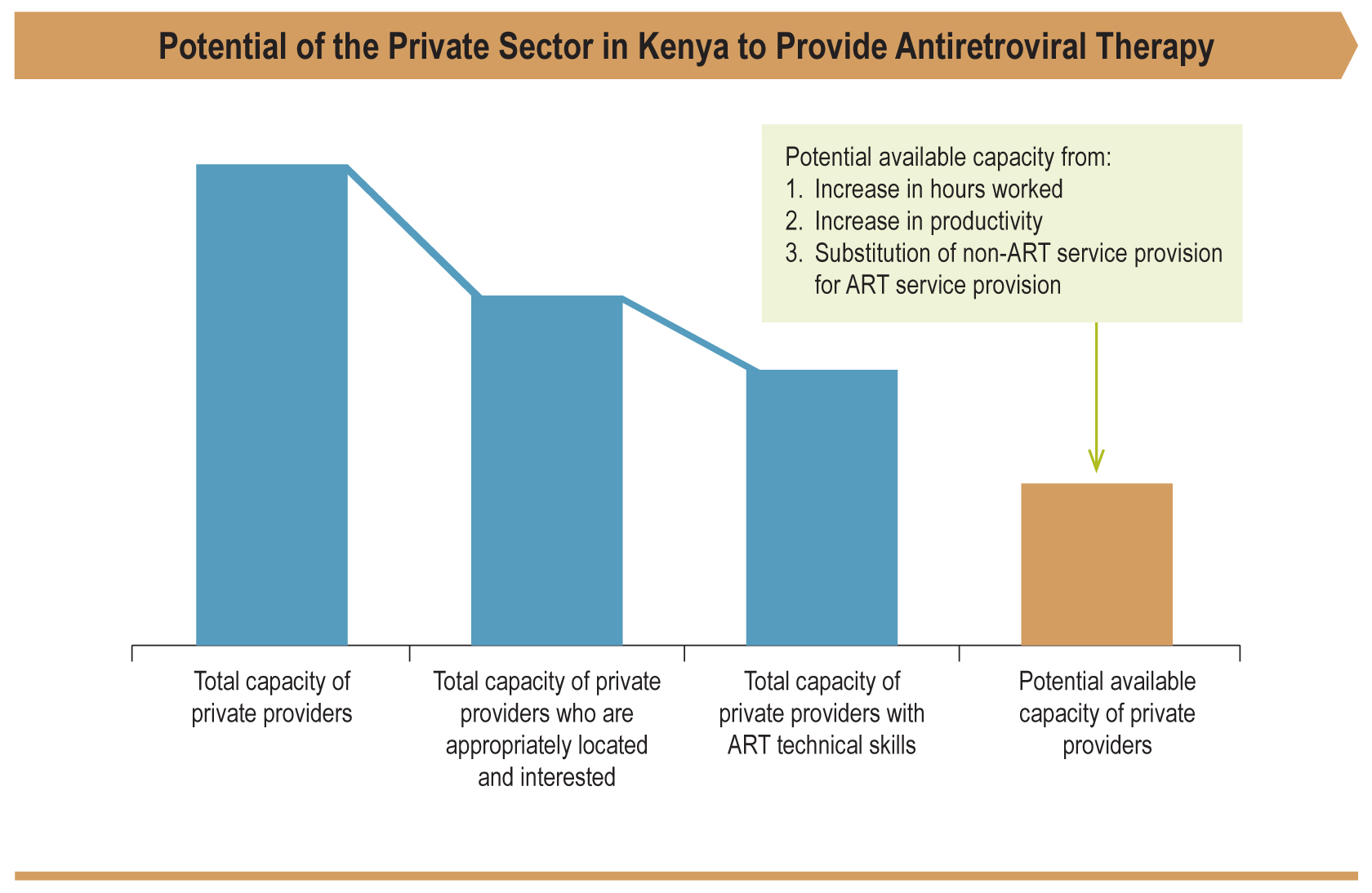
Resource Library
Estimating the Untapped Capacity of the Private Sector to Deliver Antiretroviral Therapy in Kenya
Private commercial providers represent a growing source of health care in Kenya, serving people from all socioeconomic classes. While half of commercial providers in Kenya offer HIV testing and counseling, just 3 percent provide antiretroviral therapy (ART). Increasing the role of the commercial sector in ART provision could help reduce unmet need, easing the burden on the public sector. To stimulate a more informed discussion about the potential role of the private sector, we estimated the magnitude of the potential private sector contribution in Kenya and identified barriers to expansion of the private sector’s role in ART delivery. We developed a series of equations to estimate the number of additional people living with HIV who could plausibly receive ART if commercial sector involvement were strengthened. Facility surveys and stakeholder interviews were conducted to measure interest in providing ART, the capacity to provide it, and perceived barriers to its provision. We used these data—along with publicly available secondary data―as the main inputs for the estimations, and found that commercial providers have substantial slack capacity that could be used to provide ART. Facility managers and key informants reported that the primary barriers to scaling up ART provision were inadequate provider expertise, laboratory capacity, and financing the cost of treatment. If these barriers were removed, the commercial sector could fill 85 percent of the estimated unmet need for ART in Kenya. Strengthening the capacity of private providers to meet the needs of people living with HIV offers a promising path to achieving universal ART coverage in Kenya. To accomplish this, it will be necessary to overcome the challenges of capacity and funding that private providers face in providing ART.
Resource Type : Report
Country : Kenya
Year : 2014-06-26T00:00:00
Language : English
Project : SHOPS


